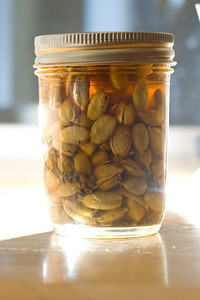
Breaking News
 A Critical Review of Impacts of Greenhouse Gas Emissions on the U.S. Climate
A Critical Review of Impacts of Greenhouse Gas Emissions on the U.S. Climate
 The Great Reject is Upon Us! - #SolutionsWatch
The Great Reject is Upon Us! - #SolutionsWatch
 Google is issuing a call to action:
Google is issuing a call to action:
 Be first, be smarter, or cheat
Be first, be smarter, or cheat
Top Tech News
 Drone-launching underwater drone hitches a ride on ship and sub hulls
Drone-launching underwater drone hitches a ride on ship and sub hulls
 Humanoid Robots Get "Brains" As Dual-Use Fears Mount
Humanoid Robots Get "Brains" As Dual-Use Fears Mount
 SpaceX Authorized to Increase High Speed Internet Download Speeds 5X Through 2026
SpaceX Authorized to Increase High Speed Internet Download Speeds 5X Through 2026
 Space AI is the Key to the Technological Singularity
Space AI is the Key to the Technological Singularity
 Velocitor X-1 eVTOL could be beating the traffic in just a year
Velocitor X-1 eVTOL could be beating the traffic in just a year
 Starlink smasher? China claims world's best high-powered microwave weapon
Starlink smasher? China claims world's best high-powered microwave weapon
 Wood scraps turn 'useless' desert sand into concrete
Wood scraps turn 'useless' desert sand into concrete
 Let's Do a Detailed Review of Zorin -- Is This Good for Ex-Windows Users?
Let's Do a Detailed Review of Zorin -- Is This Good for Ex-Windows Users?
 The World's First Sodium-Ion Battery EV Is A Winter Range Monster
The World's First Sodium-Ion Battery EV Is A Winter Range Monster
 China's CATL 5C Battery Breakthrough will Make Most Combustion Engine Vehicles OBSOLETE
China's CATL 5C Battery Breakthrough will Make Most Combustion Engine Vehicles OBSOLETE
Cardamom extract shows promise as a natural antiviral treatment

Type I interferons (IFNs) are proteins that act like the body's "first responders" when a virus, such as influenza, attacks. After binding to receptors on infected and uninfected cells, they signal the cells to produce hundreds of interferon-stimulated genes (ISGs), which induce an "antiviral state" that limits viral replication.
In a new study led by researchers at Shinshu University in Japan, an extract from the humble cardamom seed was evaluated for its ability to enhance the production of type I IFNs and, therefore, act as an antiviral agent.
"We have been researching food ingredients that can prevent viral infections in our daily life since before the emergence of the novel coronavirus," said co-corresponding author, Takeshi Kawahara, an Associate Professor at the University's School of Science and Technology. "The pandemic has increased society's focus on the antiviral properties of food, which has led to more opportunities for us to engage in this research."
The researchers used human lung epithelial cells, which line the respiratory tract and serve as a defense against inhaled pathogens and particles. These cells are commonly used as models for studying respiratory viruses such as colds and flu. The team prepared a hot-water extract of cardamom seeds (CSWE) and identified its chemical components using gas and liquid chromatography, confirming that 1,8-cineole was a major compound. (1,8-cineole, also known as eucalyptol, has anti-inflammatory, antioxidant, antimicrobial, and analgesic properties and is used in traditional medicine.)
The researchers treated the lung cells with CSWE and its main compound, 1,8-cineole, then exposed them to molecules that mimic viral DNA and RNA, to simulate an infection. They found that CSWE significantly increased IFN-? and IFN-β, both important antiviral molecules. It also enhanced the expression of ISGs, helping cells to block viral replication. This enhancement occurred whether the viral mimic was DNA or RNA, meaning that CSWE activated multiple immune pathways. This suggests it could help defend against different types of viruses. CSWE's major compound, 1,8-cineole, also boosted IFN and ISG levels in a dose-dependent way. It worked even without simulated infection, suggesting it may help keep cells in a mild state of readiness.



